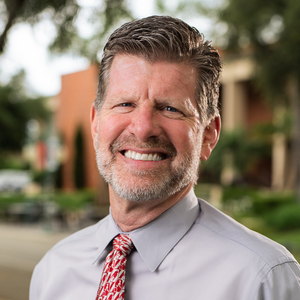This post stems from the Kern reading group on Faith, Work and Economics at Talbot, a small group comprised of Talbot and Crowell faculty that discusses the intersection of the Christian faith with issues like poverty, work, economics and justice.
Forster’s chapter[1]—focused on the contemporary, historical and theological aspects in the discussion of his topic—may be the best chapter in Loftin and Dimsdale’s book. Summarily, Forster seeks to demonstrate the theological foundations, which are lacking in the contemporary church’s view of work, resulting from a history of failure to properly understand the church’s role in this world. The main theological grid he uses to make his point are two very important teachings in the Bible: the Two Great Commandments and the Great Commission.
He immediately sets forth the main issue that he hopes to help the reader understand when he writes, “Without a sound theology of work, God’s people tend to lose track of their mission in the world; when that happens, they tend to love track of their identity as God’s people” (p. 144). It is a basic truth that who we are determines how we live. And the reverse is also helpful. How we live identifies who we are. Forster’s desire is to adjust the who we are so that this clear sense of identity can determine how we live. To do this, Forster seeks to show historically how the church has lost its way. Then, he exegetes the Bible to help the church develop a good theology of work. And, finally, he takes this foundation and offers practical application for the contemporary church. After an insightful discussion of the effects of modernity on the Christian’s identity, he exposes the limits of an over-focus on ecclesiology or missiology. His charge is to connect these two areas of theology in order to develop a deeply theological view of work that will empower the church to live as God’s people.
I want to focus in the implications that Forster makes for the church after he has developed most of his historical points. He concludes that “It is the theological significance of work that makes the key difference between real discipleship and mere consumer Christianity” (p. 155). Forster is drawing very important conclusions from his study. Most of a Christian’s time is spent in work, and, when work is not carefully connected to discipleship, then church simply becomes an activity a person does in a quarantined part of his/her life with little hope of it having any relationship to the majority of their waking hours. He continues, “Authentic discipleship to Jesus Christ requires that all areas of our lives and all our activities become modes of discipleship. Without this imperative to transform all of life into the arena of spiritual learning and service, ‘discipleship’ tends to become identified merely with the consumption of religious goods and services” (p. 155). Christians simply go to church, and then they get on with life.
We are most likely aware of the simple truth of 1 Corinthians 10:31, which states, “So, whether you eat or drink, or whatever you do, do all to the glory of God.” The connection of faith to all of life cannot be clearer, but the church can so easily miss the point when it comes to their work. Forster notes that Mark Greene “has stressed that the church’s failure to regard work as important is only a symptom of a much deeper problem: a failure to regard all of life as significant” (p. 156). In other words, if we miss this simple principle when it comes to our work, perhaps we are missing it in all of life. We go to church to consume, not be transformed to go out into the world to live out our calling.
To advance his thesis, Forster makes the strong connection, as others have, that the Great Commission, “make disciples of all nations,” includes the Great Commandments, “teaching them to observe all that I have commanded you” (p. 156). If the Great Commission is relegated to verbal evangelism and church activities, then it becomes easy to disconnect it from everyday life. The Great Commission no longer has a place in the majority of our life, our working day, except when we “share Christ.” For Forster, this is a major tragedy in the church. He wants the church to experience a necessary corrective and understand, even implement it into life, that “The Great Commandment tells us what God wants from our lives, and the Great Commission tells us how we are to pursue it: the gospel of justification and sanctification giving us transformative power for discipleship in all of life, church life and life in the world alike” (p. 157). Church is no longer an entity to consume; instead, it is a place that teaches a message, which has the power to transform the way we live as we take the most important message ever to a world which needs to hear.
Forster is not interested in simply engaging in a discussion of important ideas in the academy. He is interested in having a practical impact upon those who go to church. So, as the church seeks to undertake his challenge to connect ecclesiology and missiology, he offers some specific applications for the church to engage. He writes, “These include:
- Services to publicly commission the laity to their work, the same way 'missionaries' are commissioned to their areas of service;
- Monthly liturgical focus on particular vocational sectors (health care one month, commerce another, government, education, etc.), sometimes combined with commissioning;
- Formation groups specific to vocational sectors to contextualize Christian mission and ethics to each sector;
- New member processes that ask people about their vocational capacities as they join the church, building a knowledge base of available talents in the congregation for use in discerning opportunities for missional initiatives;
- Questions being raised about how local churches relate to the increasing ethical challenges facing Christians in their workplaces, for example, diaconal support for those who lose their jobs for the sake of kingdom faithfulness, or the role of church discipline in promoting workplace integrity” (pp. 160-61).
I believe that each of these ideas are worth thinking through in order to find the proper way of doing something in our local churches.
Forster’s final comment in the chapter is the best way to conclude this summary: “If we wish to remain the strange people called God’s people, and to be doing his work in this very strange world, ecclesiology will need to connect the church’s historic commitments – doctrine, morals, history and all the rest – to God’s mission to the world around us” (p. 161). May God help us to do just that!
Endnotes
- “Being God’s People by Working on God’s Mission,” by Greg Forster, in Work: Theological Foundations and Practical Implications, edited by R. Keith Loftin and Trey Dimsdale (SCM Press, 2018): 144-164.
 Biola University
Biola University


.jpg)
